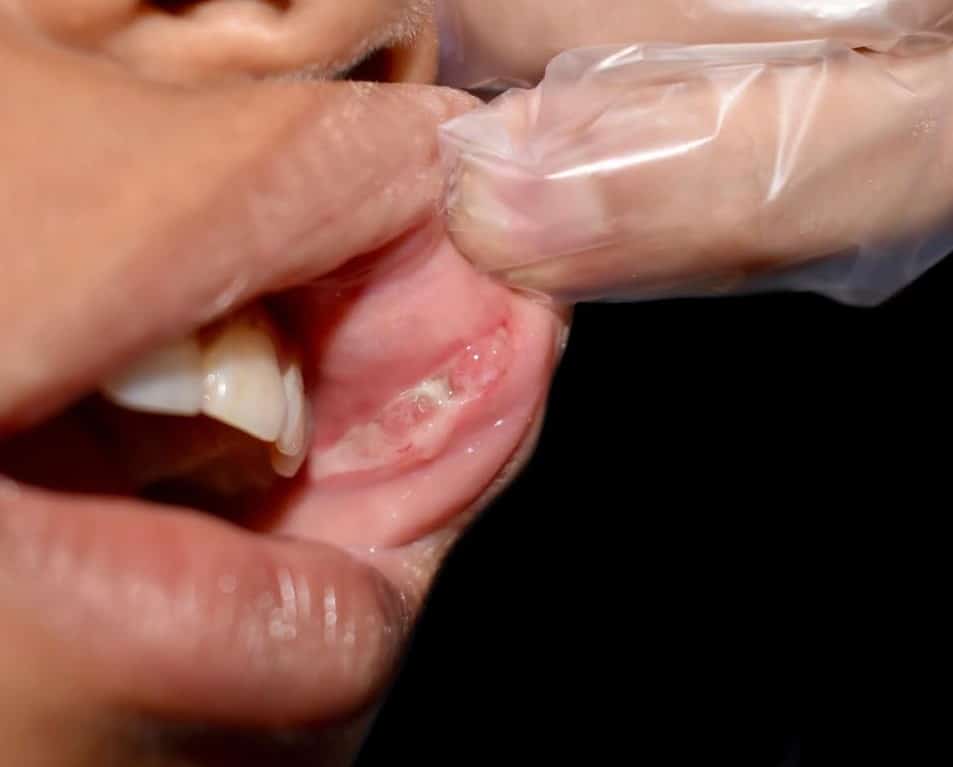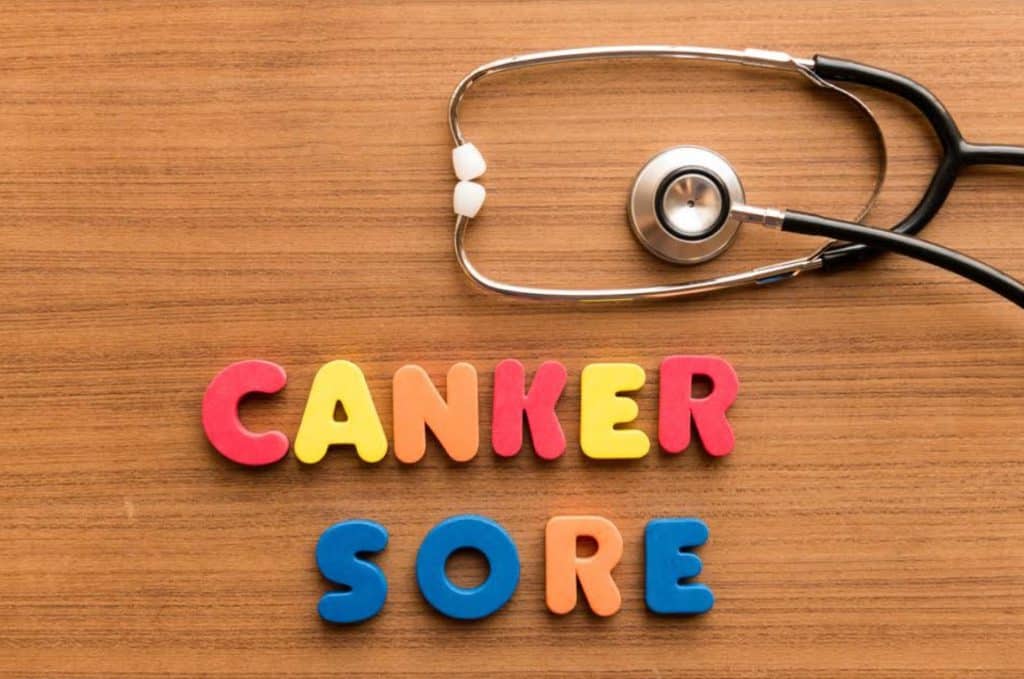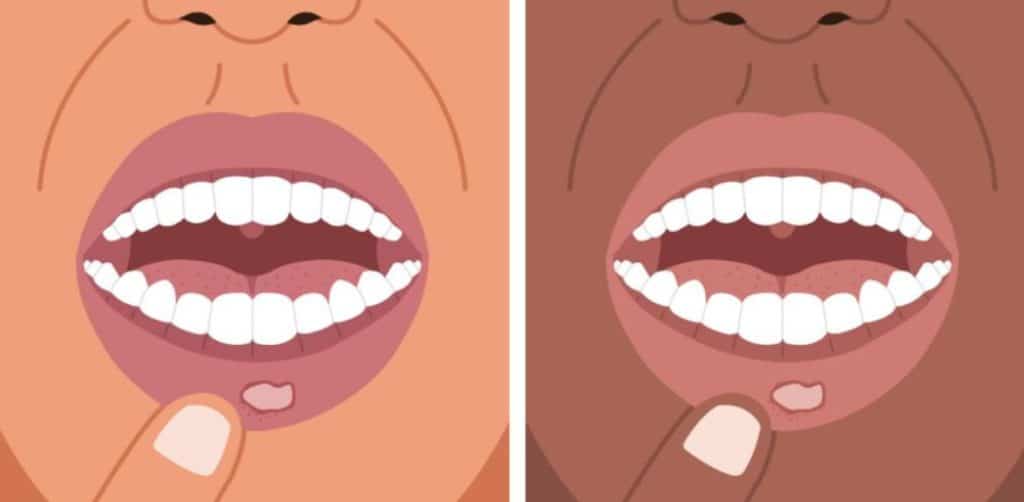Pregnancy brings a lot of changes to your body. There is practically no system or part of your body that pregnancy does not affect. As soon as you become pregnant, your body becomes more responsible for the baby. This is because you are now taking care of the new life growing inside you. Of course, this will bring many changes. Canker sores are a kind of change some women experience during pregnancy.
What are canker sores? What are the symptoms of canker sores? Why are you more likely to have canker sores during pregnancy? What home remedies can you use to relieve canker sores?
You will find answers to these questions in this article. Ensure you read to the end, that way you will be able to better care for yourself and your baby during pregnancy.

What are canker sores?
Canker sores are also known as mouth ulcers or mouth sores.
They are small blisters that appear on the inner cheeks, the tongue, or the roof of the mouth. They are usually caused by a non-viral condition called aphthous stomatitis. Most canker sores eventually develop into white shallow lesions that may be inflamed, giving a characteristic red or pink color appearance.
These sores are not contagious at all, and they can go away on their own.
However, they can be really painful, thereby making feeding and talking difficult. Most canker sores are relatively small in size, measuring about 1-4mm, but some sores can be so aggressive, measuring more than 5mm.
Symptoms of mouth ulcers in pregnancy
Mouth ulcers can cause pain and a burning sensation.
They are also irritable, making feeding and talking painful. They are usually well-defined, round, and shallow in the mucosal surface. Some canker sores can start as a tingling sensation before they eventually appear.
Canker sores can affect the gums, and rarely, affect the surface of the back part of the mouth. In severe cases, canker sores can have other symptoms like fever and swollen lymph nodes.
5 reasons why you are likely to get canker sores while pregnant
The major changes in your body during pregnancy predispose you to a lot of things, including canker sores.
Here are some of the reasons why you may have canker sores during pregnancy:
1. Hormonal changes
You can blame your hormones for almost all the changes that happen to you during pregnancy. During pregnancy, your hormone levels fluctuate, and this can cause canker sores.

The level of progesterone increases during pregnancy and progesterone exaggerates your body’s reaction to oral bacteria and plaque. This can lead to complications of oral health, making you more vulnerable to canker sores.
Also, the increased level of progesterone makes the oral environment more sensitive to some stimuli like foods and acids, increasing the possibility of canker sores.
2. Nutritional deficiencies
During pregnancy, you are not eating for yourself alone, you are eating for your baby too. Therefore, you have to find and follow the right pregnancy diet.
Your baby absorbs the nutrient they need from your body, so if you fail to replenish them, you become deficient in them first. This is why it is good to eat healthily during pregnancy.
Some women also suffer from malabsorption.
This reduces the ability of their body to absorb nutrients from the food they eat and the supplements they use.
Some of the nutrients that are easily deficient and can lead to canker sore are:
- Folic acid
- Iron
- Calcium
- Zinc
- Vitamin B-12
3. Weak immunity
Canker sores during pregnancy may be due to a weak immune system. A weak immune system is normal during pregnancy, as it helps to accommodate your baby.
Nonetheless, this may explain why you are prone to infections and canker sores.
4. Stress
Pregnancy can be stressful, not just physical stress, but emotional stress as well. This stress can lead to starting different habits that can cause canker sores like eating acidic foods and biting the inner cheeks.
5. Late response to morning sickness
If you had morning sickness earlier in pregnancy, canker sores may be the result of the acid bath your oral cavity experienced during those moments. You can also read this article on foods that relieve morning sickness.
Preventing canker sores in pregnancy
There’s really nothing you can do to prevent canker sores from happening, but thankfully, you can prevent them from getting worse.
Here are a few things to do:
- Eat healthy and nutrient-rich foods. Here are 7 healthy foods to eat during pregnancy.
- Take high-quality prenatal vitamins.
- Reduce or avoid spicy foods, hot or acidic foods, and drinks.
- Avoid foods that are abrasive or have the tendency to stick in your mouth like potato chips.
- You should also avoid traumatizing the ulcer, especially through harsh contact with your toothbrush.
- Have a good sleeping habit to help you relieve stress.
- You should also see your dentist regularly.

Home remedies to help relieve canker sores
- Rinse your mouth with warm salt water. This helps to ease the pain.
- Apply hydrogen peroxide and water on the sore.
- Applying a small amount of milk can help to relieve pain and also promote healing.
- You can rinse your mouth with warm water and baking powder too.
- You should avoid spicy or acidic foods.
- Stay away from tobacco: Aside from the fact that tobacco worsens canker sore, it is also not healthy during pregnancy.
- Putting ice cubes on the sore also helps to relieve pain.
- Honey is also said to be effective in treating canker sores.
- Drink a lot of water.
Conclusion
Generally, canker sores are harmless, although they can cause a lot of pain and discomfort.
It is just one of the many side effects of pregnancy. These sores can be managed by maintaining good oral hygiene, living a healthy lifestyle, reducing stress, and eating nutrient-rich foods.
Mouth ulcers should not last more than 1-2 weeks. If they are or they are causing serious discomfort, you should see your doctor. Your doctor may then make further prescriptions that can help you get better.
Despite the fact that these sores are self-limiting, you should see a doctor if the sore takes a longer time to heal, is reoccurring, or the sores are very large.

